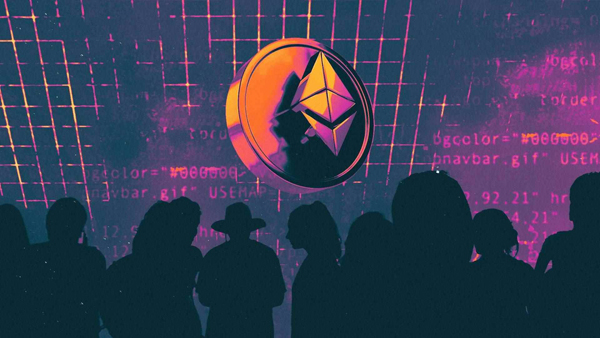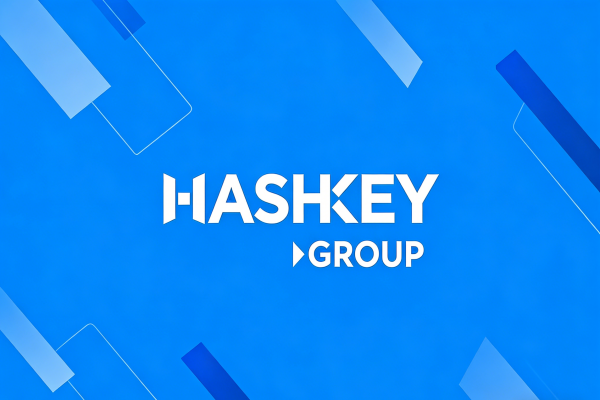After the change of power, where will the Ethereum Foundation go?

In March 2025, the Ethereum Foundation (EF) announced a major change in leadership: Executive Director Aya Miyaguchi stepped down from daily management duties and became the chairman of the foundation. Hsiao-Wei Wang and Tomasz Stańczak were appointed as new co-executive directors, and the return of former EF researcher Danny Ryan also welcomed cheers from the community.
Combined with the ETH price, which has always been closely watched by the market, and the foundation, which has been at the forefront of market discussions recently, this personnel adjustment is more like a game about the future direction of Ethereum. From the fierce debate in the community to the personnel changes in the leadership, this story of power transition is also driven and expected by the market.
From executive director to chairman, is it actually a promotion in name only?
After serving as executive director for 7 years, the controversial Aya Miyaguchi was promoted to chairman of the EF Foundation. This may seem like an upgrade, but from the perspective of real power distribution, this change may be more appropriately described as "promotion in name but demotion in reality". The executive director position that is more practical is assigned to two people who are closer to the technical community, Wang and Stanczak. Aya's new position as the chairman of the foundation is more like the image representative (or mascot) of the foundation, which may be more in line with Aya's own behavior.
In 2018, when Aya Miyaguchi took over the baton of EF executive director, she set her sights on building a more "non-profit and sustainable" future for Ethereum. With a more idealistic vision, Aya defined Ethereum as the concept of "infinite garden", encouraging developers to innovate freely in an open, permissionless ecosystem. At the same time, the Devcon conference promoted by Aya has become a grand event for the global Ethereum community every year.
However, overly idealistic visions and behavior styles can support the future of the foundation, but they may not meet the expectations of the community. Until last year, the community became increasingly dissatisfied with her leadership style. Some people thought she was too conservative in resource allocation. In the face of the continuous innovation of Solana, Ethereum's response was obviously a bit slow. At that time, Aya, as an executive director, focused more on cultural promotion rather than technological breakthroughs and market operations. In addition, the news that EF continued to sell ETH ran through the poor performance price, which made many developers and investors feel that EF was gradually "unworthy of the position". The debate in the community intensified, and even extreme remarks and life threats against her personally appeared. Vitalik had to come forward to call on the community to calm down.
Now, Aya, who has become the chairman, will focus on strategic guidance and external cooperation, which also marks the end of her years of real power execution.
Hsiao-Wei Wang: Early core researcher, connecting community and technology
One of the new executive directors, Hsiao-Wei Wang, whose Chinese name is Wang Xiaowei.
Unlike Aya, Hsiao-Wei Wang's story began at the intersection of code and community. In 2017, she joined EF as a core researcher, and with her technical background of a master's degree in network engineering from National Chiao Tung University, she quickly became a key force in Ethereum core development. Her expertise focuses on sharding and beacon chains, and she played a key role in The Merge in 2022. #p#Page Title#e#
In 2018, she organized and participated in the Ethereum Sharding Workshop in Taipei, attracting developers from all over the world. This event brought the Asia-Pacific Ethereum community to the fore and established her reputation as a person who values both technology and communication. She travels around Asia all year round, hosting developer meetups, breaking down complex technical principles and connecting them to the community's cognition. She recalled: "That was the first time we really brought the global R&D team to the local area, and the atmosphere was great."
Dr. Dong, founder of Celer Network, gave Hsiao-Wei Wang a high evaluation, saying that from 2018 to 2019, Wang and Ken, the current head of Uniswap Foundation, were responsible for the Ethereum Foundation's Grant, which was very active and effective. Wang is more aware of the capabilities of Asian builders and has fought for the right to speak for many Asian/Chinese builders. She is very pragmatic.
Today, as an executive director, Wang shoulders the dual responsibilities of R&D insights and community building. Her arrival is seen as a signal that Ethereum has regained its technology and grassroots spirit.
Tomasz Stanczak: Ethereum Infrastructure Architect
If Wang is a bridge between technology and community, then Tomasz Stanczak is more like an architect of Ethereum infrastructure. He is the founder of Nethermind, an execution client that is now an indispensable part of the Ethereum network.
In 2017, Nethermind was just a small project in Poland. Stanczak and a few friends were writing code in a small apartment in Warsaw, trying to build an efficient Ethereum client.
A few years later, he developed Nethermind into the backbone technical force of the Ethereum network, supporting the stable operation of the network. His vision is not limited to client development, but also goes deep into fields such as MEV and PBS (proposer-builder separation). As an early member of Flashbots, he contributed important ideas to the decentralization and security of Ethereum, such as optimizing the block proposal mechanism to reduce the centralization risk of miners.
At Devcon SEA in 2024, Stanczak stood in the center of the stage and shared his vision for the cross-application of Ethereum and AI. Today, he has become the co-executive director of EF, responsible for the growth of the ecosystem and the protection of core values. His engineering background and strategic vision have given the community new expectations for the technical future of Ethereum.
Danny Ryan announced his return to the ecosystem, which was what everyone expected
After the announcement of the personnel change, the community's response came like a tide. On Twitter, some people praised Wang and Stanczak's technical background, believing that this was a signal that Ethereum was returning to its technical focus; others questioned on Reddit whether simply changing people could solve the underlying problems. V God also publicly supported the transition, calling it "part of the advance plan."
At the same time, Danny Ryan, a former EF researcher who is very well-known in the Ethereum community, also expressed positive affirmation of the personnel change and announced his return to the Ethereum ecosystem as a co-founder of Etherealize, the institutional marketing and product department of the Ethereum ecosystem. The community also said that Danny Ryan's return may lead Ethereum to a more mature development path. #p#Page title#e#
Interestingly, in an informal community vote for Ether in January this year, Danny Ryan was selected as the best candidate to serve as the sole leader of EF.
Still "too centralized"?
EF's leadership change did not come out of thin air, but was the inevitable result of community dissatisfaction, market competition and technical bottlenecks.
In 2024, Ethereum faced internal and external troubles: Solana's "Meme Paradise" built with low cost and high efficiency attracted huge market funds and attention, while Ethereum's high gas fees and congestion problems have not been solved, and the ETH price is even mediocre in comparison. The deeper contradiction lies in the governance model. EF's decision-making power has long been concentrated in a few people, and this structure is clumsy in the current market's high-speed iteration needs.
The community discussion was extremely intense, pointing the finger at EF, believing that it was too passive under Aya's leadership and failed to respond quickly to competitive pressure. Some people even directly attacked Aya, saying that her overly idealistic ideas did not match the market demand at the time, and remarks such as "Why not eat meat" and "ruining the golden age of Ethereum" emerged one after another.
It's just that this job change did not really solve the problem of "centralization" at the top of EF. After all, Vitalik said that Aya had taken the initiative to propose the idea of becoming the chairman a year ago, and Vitalik also clearly mentioned in the debate with the community that the decision-making power of EF's senior management changes still belongs to him.
Therefore, this personnel change seems to be a response to community issues, but perhaps it is still an execution of centralized decision-making in essence.
The market only looks at the real results, and Ethereum needs to find a balance
Obviously, for the appointment of Wang and Stanczak, the community is looking forward to the new leadership to bring substantial changes, but also worried that this is just a superficial effort under centralization. Expectations and doubts are intertwined, forming a complex atmosphere at the beginning of the change. Perhaps the community is only fresh about the new officials taking office, and transparent funding allocation and specific reform measures are the answers that the community really wants to see. In the next few months, every decision of the new leadership will be magnified and examined.
Facing Ethereum, which needs to change, different perspectives will inevitably lead to different ideas. The top leaders of the foundation want to build a more ideal ecology and future, but dreams always need bread to support them, and the crypto market is no longer the market where Ethereum has its own say. If EF just blindly sells coins and talks about building, while ignoring the real feelings of the community, it will undoubtedly only deepen the market's doubts about the so-called "decentralization" of Ethereum.
Standing at the current node, we cannot predict the outcome. But one thing is certain: superficial efforts and grand narratives can no longer support the real future of Ethereum. Instead of letting the community and Holders swing back and forth between forced construction and helpless abuse, it is better to let Ethereum executives such as EF seek a real balance between decentralized development and centralized decision-making.









